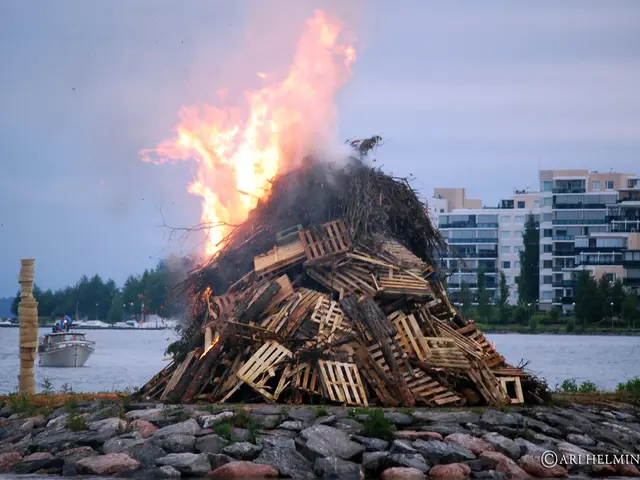Restoration of Jammu and Kashmir Statehood: Supreme Court Advises Petitioners to Grasp Real-World Circumstances, Given Recent Pahalgam Incident
Jammu and Kashmir's Statehood Restoration: Supreme Court Hearing and Pahalgam Terror Attack
The Supreme Court of India, on August 14, 2025, acknowledged the importance of "ground realities" in Jammu and Kashmir (J&K), specifically referring to the Pahalgam terror attack, while hearing a plea for restoring statehood to the Union Territory.
The bench, comprising Chief Justice B.R. Gavai and Justice K. Vinod Chandran, emphasised that security concerns cannot be disregarded in the deliberation process. The petition, filed by Zahoor Ahmed Bhat and Khurshid Ahmad Malik, argues that the delay in restoring statehood, despite the abrogation of Article 370 and the bifurcation of J&K into Union Territories in 2019, violates the Constitution’s federalism principles.
Petitioners also pointed out that the Supreme Court’s earlier judgment had envisioned the restoration of statehood soon after elections. Politically, Jammu and Kashmir’s Chief Minister Omar Abdullah has been vocal in advocating for statehood restoration, expressing frustration over delays, especially after hopes for an announcement during the recent Monsoon Session of Parliament were unfulfilled.
The 2019 Jammu and Kashmir Reorganisation Act, which downgraded J&K to a Union Territory with reduced legislative powers and put policing and public order under central control, remains the legal framework currently governing the region. Restoration of statehood would empower the local Chief Minister and legislature with enhanced powers and greater autonomy.
During the hearing, the Solicitor General Tushar Mehta represented the Union government and questioned the timing of the petition. The court has sought a response from the Centre and listed the matter for hearing in eight weeks. The Union government stated that elections in Jammu and Kashmir had already been conducted.
In its 2023 verdict upholding the abrogation of Article 370, the apex court, led by then CJI D.Y. Chandrachud, unanimously upheld the President's authority to revoke Article 370. The court has now asked the Centre to respond to the petitioners' claims and has scheduled the matter for hearing in eight weeks. The court's decision on the restoration of Jammu and Kashmir's statehood is still pending.
- Addressing the escalating health concerns and maintaining peace, it's crucial to prioritize sports as a uniting tool in the troubled Jammu and Kashmir, considering its potential to promote harmony and foster a sense of general news Among the populace during these tumultuous times amid war-and-conflicts and policy-and-legislation debates.
- In the ongoing discourse of Jammu and Kashmir's statehood restoration, it's imperative to examine crime-and-justice tactics and consequences of protracted political stalemates to ensure the safety and wellbeing of its citizens.
- As the Supreme Court deliberates on Jammu and Kashmir's statehood restoration, it's essential to assess existing legislation like the 2019 Jammu and Kashmir Reorganisation Act for potential effects on the region's health, as tackling everyday challenges becomes crucial for promoting overall progress and stability in the Union Territory.





